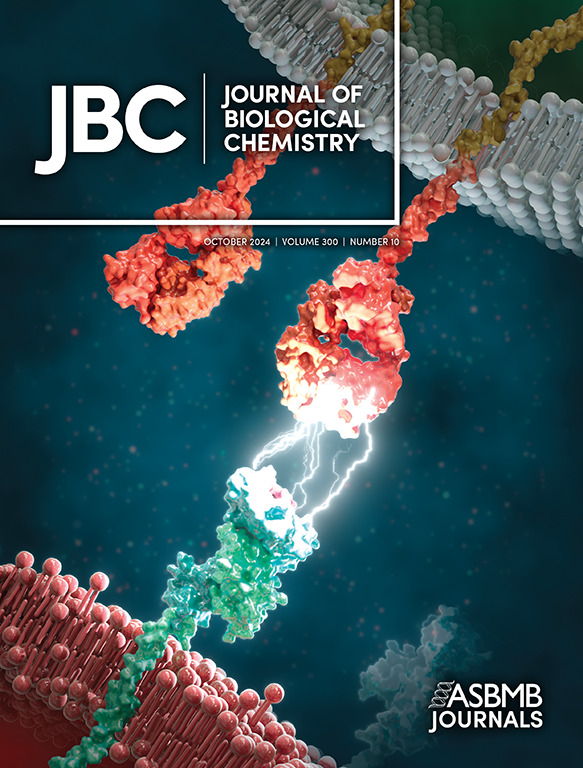TFAP2C Drives Cisplatin Resistance in Bladder Cancer by Upregulating YAP and Activating β-Catenin Signaling.
IF 4
2区 生物学
Q2 BIOCHEMISTRY & MOLECULAR BIOLOGY
引用次数: 0
Abstract
Cisplatin-based chemotherapy is a conventional therapy for muscle-invasive bladder cancer (BC); However, its efficacy is often limited by the emergence of resistance to cisplatin. Yes-associated protein (YAP) and β-catenin are involved in this resistance, yet their upstream regulators are not well defined. This study investigates the role of TFAP2C in regulating YAP expression and its impact on cisplatin resistance in BC. The Cancer Genome Atlas (TCGA) gene expression data and GSE231835 dataset were analyzed to identify potential transcription factors regulating YAP. Assessed TFAP2C and YAP expression in clinical samples and cell lines. Functional assays were performed following TFAP2C knockdown. Dual-luciferase reporter assays and Chromatin immunoprecipitation (ChIP) confirmed TFAP2C binding to the YAP promoter. An mouse model evaluated the effects of TFAP2C silencing on tumor growth and cisplatin resistance. The results showed that TFAP2C was identified as an upstream activator of YAP, with elevated expression in cisplatin-resistant BC cell lines and positive correlation with YAP expression. Silencing TFAP2C reduced malignant behaviors, decreased YAP, phosphorylated YAP (p-YAP), and β-catenin levels, and increased apoptosis in both cisplatin-sensitive and resistant BC cells. Besides, TFAP2C directly binds to the YAP promoter, enhancing its transcription. In the xenograft model, TFAP2C silencing significantly inhibited tumor growth and reduced cisplatin resistance. TFAP2C promotes cisplatin resistance and malignant behavior in BC by upregulating YAP and activating the β-catenin signaling pathway. Targeting TFAP2C offers a novel therapeutic strategy to overcome cisplatin resistance in BC, representing a new discovery in combating chemoresistance.TFAP2C通过上调YAP和激活β-Catenin信号通路驱动膀胱癌顺铂耐药
以顺铂为基础的化疗是肌肉浸润性膀胱癌(BC)的常规治疗方法;然而,其疗效往往受到顺铂耐药的限制。yes相关蛋白(YAP)和β-连环蛋白参与了这种抗性,但它们的上游调节因子尚未明确。本研究探讨TFAP2C在BC中调控YAP表达的作用及其对顺铂耐药的影响。通过分析癌症基因组图谱(Cancer Genome Atlas, TCGA)基因表达数据和GSE231835数据集,确定调控YAP的潜在转录因子。评估TFAP2C和YAP在临床样本和细胞系中的表达。TFAP2C敲除后进行功能检测。双荧光素酶报告基因检测和染色质免疫沉淀(ChIP)证实TFAP2C与YAP启动子结合。小鼠模型评估TFAP2C沉默对肿瘤生长和顺铂耐药的影响。结果表明,TFAP2C是YAP的上游激活因子,在顺铂耐药BC细胞系中表达升高,与YAP表达呈正相关。在顺铂敏感和耐药的BC细胞中,沉默TFAP2C可减少恶性行为,降低YAP、磷酸化YAP (p-YAP)和β-catenin水平,并增加凋亡。此外,TFAP2C直接结合YAP启动子,增强其转录。在异种移植瘤模型中,TFAP2C沉默显著抑制肿瘤生长并降低顺铂耐药性。TFAP2C通过上调YAP和激活β-catenin信号通路促进BC的顺铂耐药和恶性行为。靶向TFAP2C为克服BC顺铂耐药提供了一种新的治疗策略,是对抗化疗耐药的新发现。
本文章由计算机程序翻译,如有差异,请以英文原文为准。
求助全文
约1分钟内获得全文
求助全文
来源期刊

Journal of Biological Chemistry
Biochemistry, Genetics and Molecular Biology-Biochemistry
自引率
4.20%
发文量
1233
期刊介绍:
The Journal of Biological Chemistry welcomes high-quality science that seeks to elucidate the molecular and cellular basis of biological processes. Papers published in JBC can therefore fall under the umbrellas of not only biological chemistry, chemical biology, or biochemistry, but also allied disciplines such as biophysics, systems biology, RNA biology, immunology, microbiology, neurobiology, epigenetics, computational biology, ’omics, and many more. The outcome of our focus on papers that contribute novel and important mechanistic insights, rather than on a particular topic area, is that JBC is truly a melting pot for scientists across disciplines. In addition, JBC welcomes papers that describe methods that will help scientists push their biochemical inquiries forward and resources that will be of use to the research community.
 求助内容:
求助内容: 应助结果提醒方式:
应助结果提醒方式:


